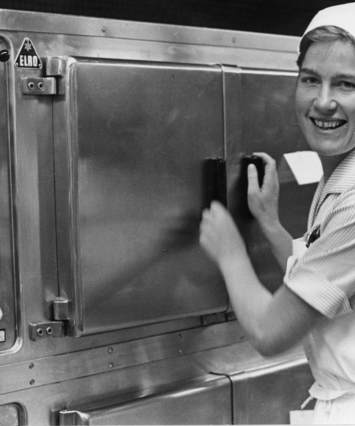Debora Senn-Kupferschmid June 13, 1942-July 7, 2006
On August 5, a crowd of Debora's friends gathered in the German church in Murten to surround her family at a memorial service. When Debora, during her painful illness, felt that her time here on earth was coming to an end, she wished for a service of gratitude, accompanied by music: it was a song and a quartet by Handel.
Her husband's message and the pastor's words were very moving. Both mentioned that after her normal school in Thun and her three years of teaching in Stechelberg, she gave her best for ten years by engaging herself in a totally selfless way in Caux and in other places with the Moral Rearmament (Initiatives of Change). The pastor spoke of how impressed he was with this and challenged the audience, saying, "Where are we? What are we doing to make the world different?"
Someone said that she knew Debora as a child when she and her two sisters came to Caux, where her father was fixing up the heating system.
Many of us got to know Debora in the Caux kitchen, where she led her team with great heart and care, and where she became an excellent cook. During our last visit to the Lindenhofspital on her birthday, she and Ruth Dallas-Mathys shared memories of long hours spent together studying recipes. She never did anything by half.
I also remember how much she cared about the Jura question. I remember a meeting in Hilterfingen, at the Kupferschmid's house, between Bernese from the Oberland and separatists from the Jura, where Debora delicately elicited the understanding of the Bernese for what the Jura people cared about.
When Debora had free time, she played the violin, and so, after those years in Caux, music became her vocation.
The "Freiburger Nachrichten" reported that after graduating as a violin teacher at the age of 40, she moved to Murten in 1983, where she spent the happiest years of her life with Walter Senn (...). She was particularly fond of group music, which is why 16 years ago she founded an orchestra with her students, the "archini murtensi". The success of this ensemble in Murten and the surrounding area led her to ever greater achievements. Last autumn, the Elsner Foundation awarded Debora the Culture Prize for her outstanding commitment to music (...). She accepted it with joy and gratitude.
For many people Debora was a remarkable, radiant and warm woman. Her personality has left a lasting impression on them, and not only in the field of music.
French


